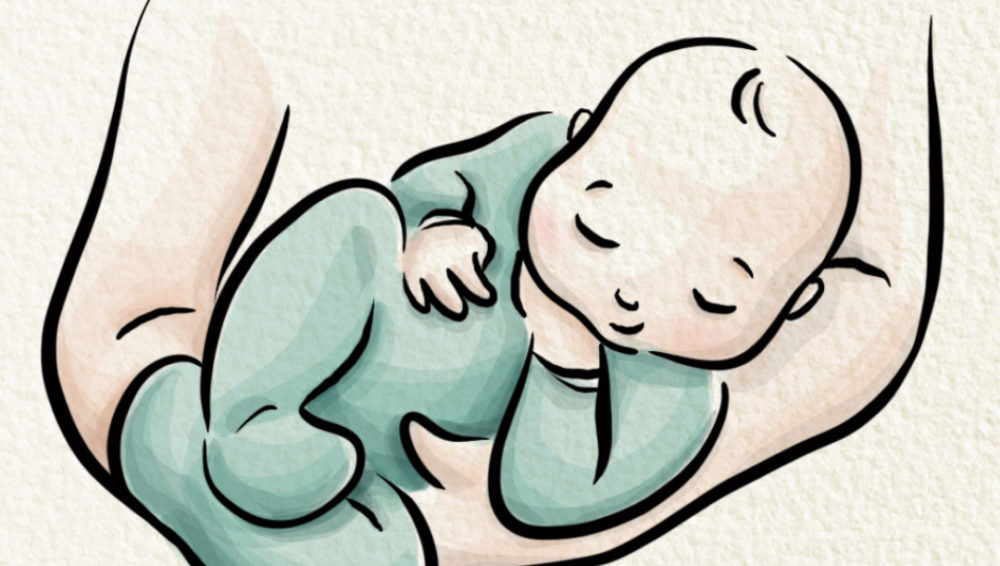Month 1: Taking care of your newborn

Welcome to your first month of being a parent! Having gone through such a miraculous journey of pregnancy, the next chapter, parenthood, has just begun.
The first few weeks will be very busy — learning and adjusting to new routines and skills, both for you and the baby.
How are you and your baby
Your Child will be feeding, sleeping, and producing a lot of wet diapers. Newborns sleep more than they are awake — they sleep for about 16-18 hours a day, 1-2 hours at a time throughout the day. They also need to be fed 8-12 times a day and usually have about 4-8 wet diapers a day.
For many new moms, the first few weeks out of the hospital can feel overwhelming. You will be recovering from postpartum complications (both physically and mentally such as bleeding, vaginal tears, uterus shrinking, and postpartum depression. It is also the time to attune to your baby’s different cries, learn to breastfeed, and adjust to the new sleeping routines.
It is important to reach out for help if your new role is causing too much distress. To make these tasks feel manageable, here are things you need to know about taking care of your newborn.
What are newborns’ health and hygiene
The first month of Your Child’s life requires extra care than other periods because a newborn’s immune system and digestive system are still weak. Your doctor or midwife may have given you preliminary training on how to handle your newborn’s hygiene routines, such as bathing and caring for sensitive parts like the stump, as well as checking for signs that the baby is feeding and growing well.
During this month, the doctor may schedule an appointment to check up on your postpartum recovery and your baby’s development.
How to care for your newborn
Weak neck: A newborn’s neck muscles are still developing, though they are usually the first set of large muscles to gain strength. Giving Your Child tummy time a few minutes each day when they’re alert during these first few weeks helps with building muscle control. Until they develop strong neck muscles, you should always support the back of their neck.
Umbilical stump: To avoid infection, gently dab a cotton ball infused with alcohol to sanitize the stump once a day, wiping from the base to the tip of each side, and let it air dry. After the first week, the cord will fall off by itself.
Other sensitive parts: Baby’s skin is very sensitive, so clothing should be soft to avoid irritating the skin. Also, try to keep the folds of skin — especially those around the neck and behind the knees and elbows — dry to avoid rashes. But don’t bathe Your Child too often, as that can cause skin dryness and lead to irritation.
Clothing: After dressing your baby, check to make sure that your baby is not too warm or too cold. The best way to do that is by feeling their hands or feet. Too many layers of clothing can cause overheating, which is a cause of Sudden Death Syndrome (SIDS) in infants. In the colder days, babies lose most of the heat from their heads, so make sure Your Child wears a hat to keep their body temperature in check during such periods.
Sleep arrangement: Newborns can’t tell the difference between night and day, but you can teach Your Child by arranging the sleeping environment. For example, day naps can be in a room that is a bit brighter than night sleep. Establishing bedtime routines, such as showering first, then feeding, and ending with a song before laying them down to sleep, can help prepare babies to settle easily as they get older.
Crying: After nine months in the comfort of your womb, newborns can feel overwhelmed and frightened to be suddenly tossed into the world. Some might react to this sudden change with prolonged periods of anxiety, expressed as long hours of crying. Comforting Your Child with skin-to-skin contacts or swaddling might help make this transition easier for both of you.
On the other hand, Your Child may cry because of hunger, dirty diapers, or loud noises. Crying is the only way for your baby to communicate needs. Try to attend to their cries with gentle touches and calming voices as much as possible. You will slowly learn to distinguish different types of cries to know what your baby needs in each case.
Feeding and burping: Your baby will be feeding as often as every 1-2 hours both in the day and at night. Sometimes, your baby may have hiccups, but that doesn’t mean Your Child needs water. Newborn hiccups are usually caused by overfeeding, swallowing too much air, or drinking too quickly. Burping after drinking usually reduces the air in the tummy and helps with colic. Also, try to feed your baby at night. Babies have small stomachs and need to be fed often, so they can’t go all night without drinking.
Growth: During the first 2 weeks after birth, babies usually lose a little weight. They normally gain it back after learning to feed outside the womb. Other healthy signs that show that Your Child is developing well include mustard-colored poop, colorless urine, and non-yellowish skin tone and eye whites. If you notice physical changes in the color of any of the above, be sure to consult a pediatrician.
Why newborn care matters
Taking care of your baby’s hygiene and providing comfort and care during the first few weeks of life is crucial for their development. It provides a healthy and strong foundation for Your Child to feel secure to learn and practice new skills they will need to become independent in the months to come.
Verified:
Dr. Ketsupa Jirakarn (Mental health specialist) (18 February 2022)



